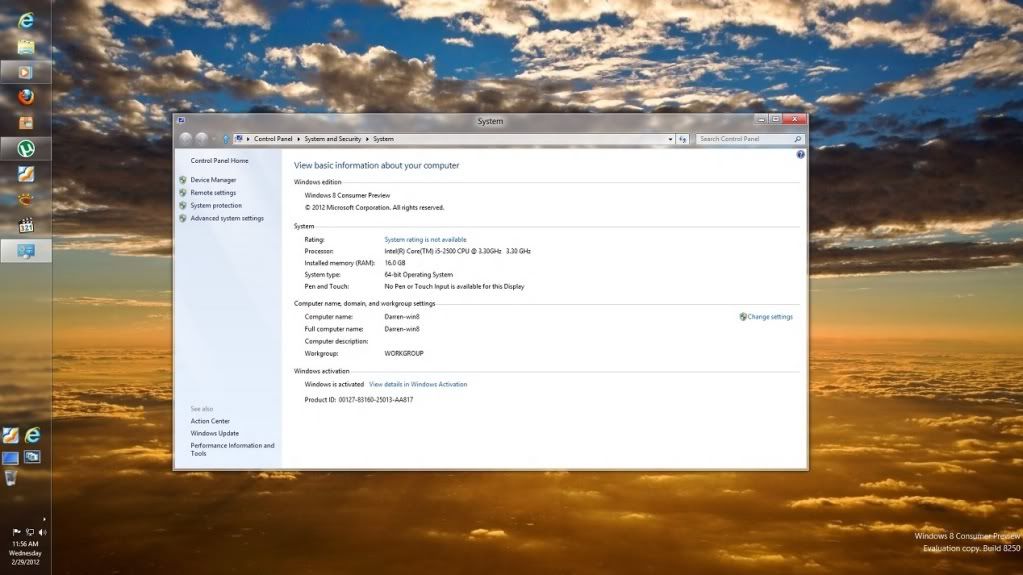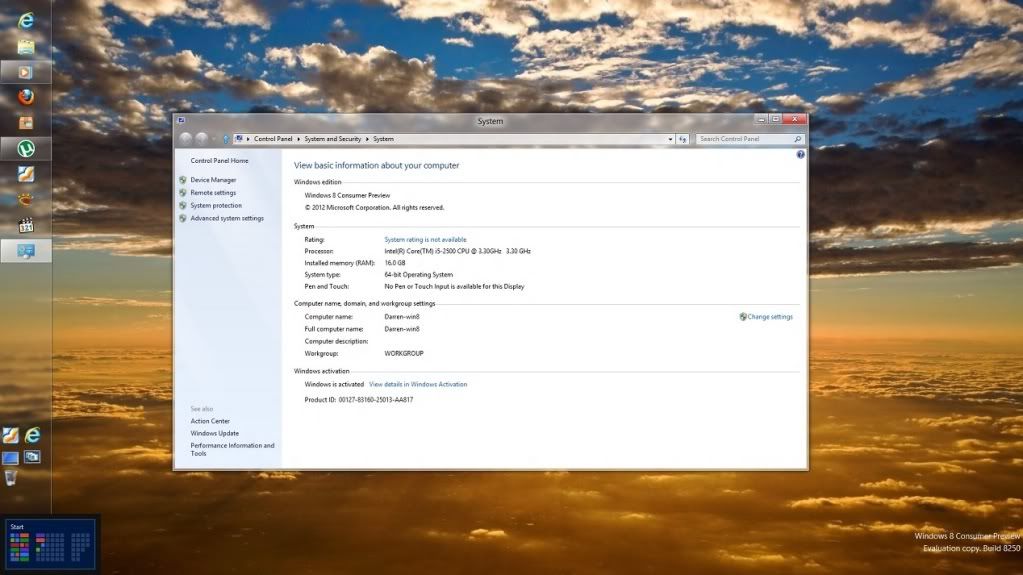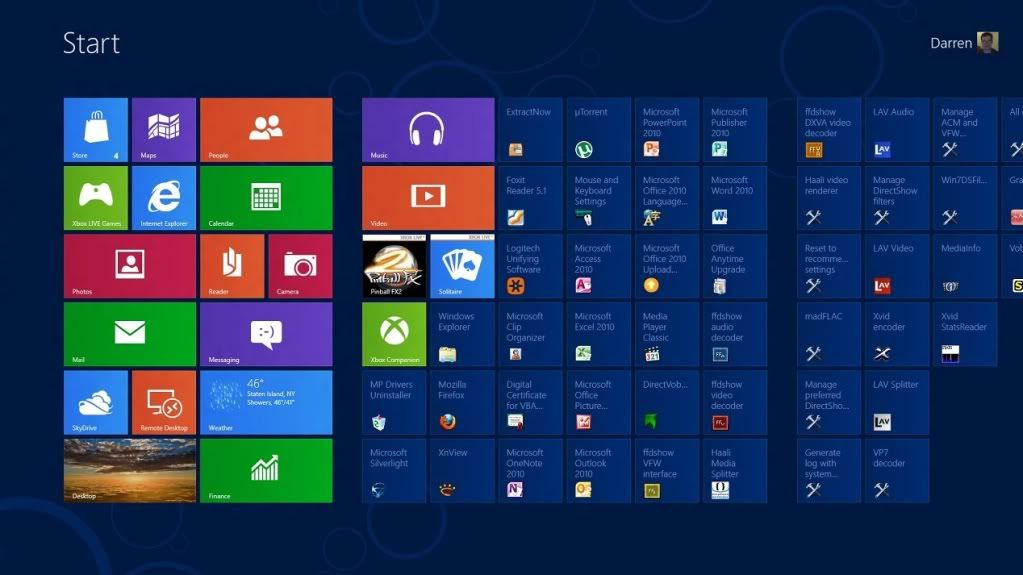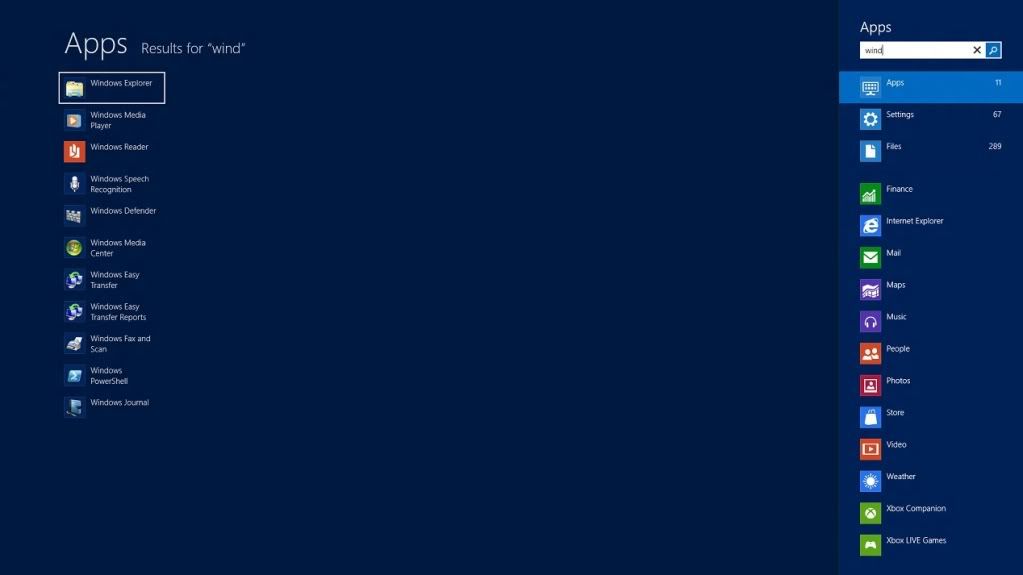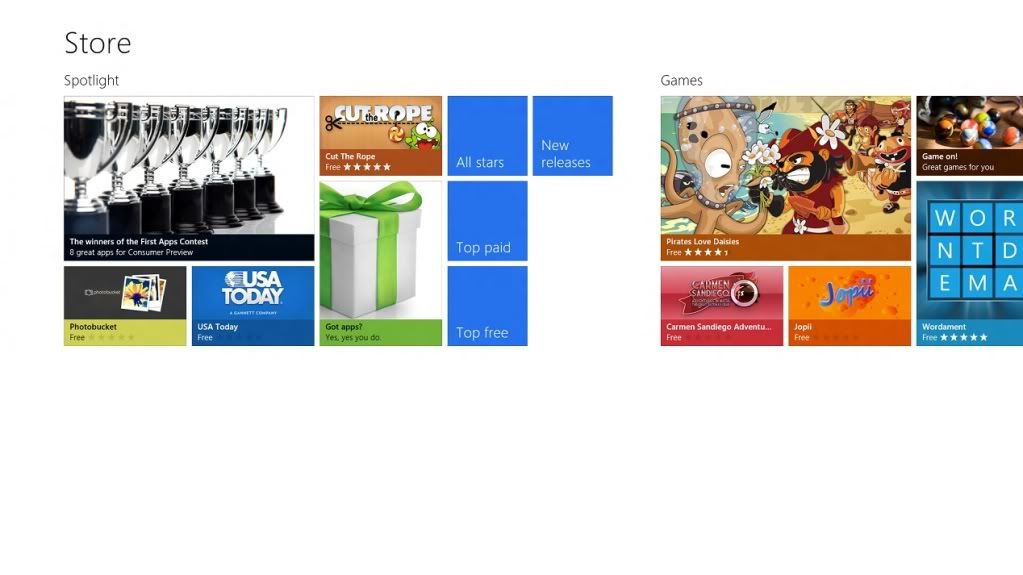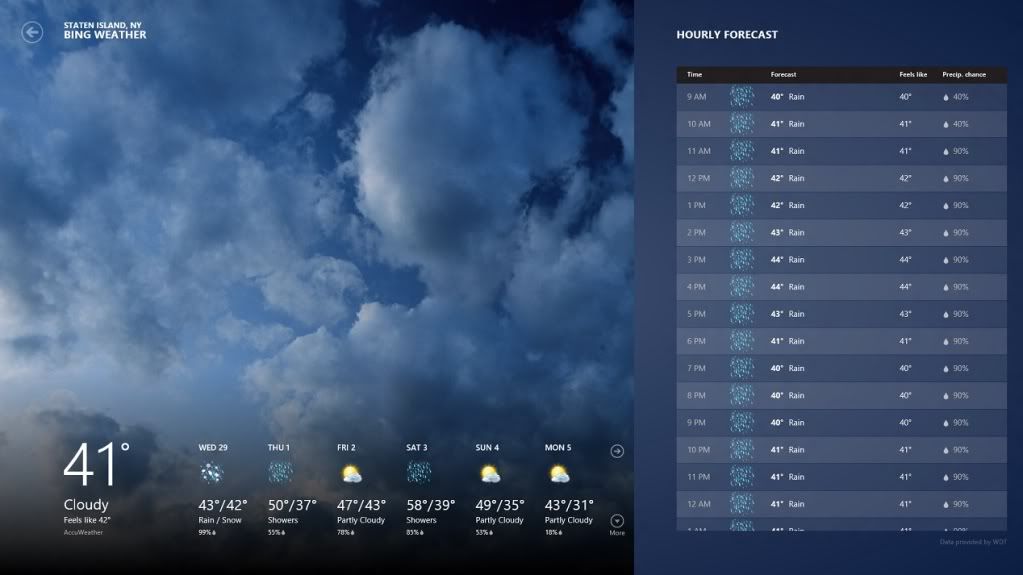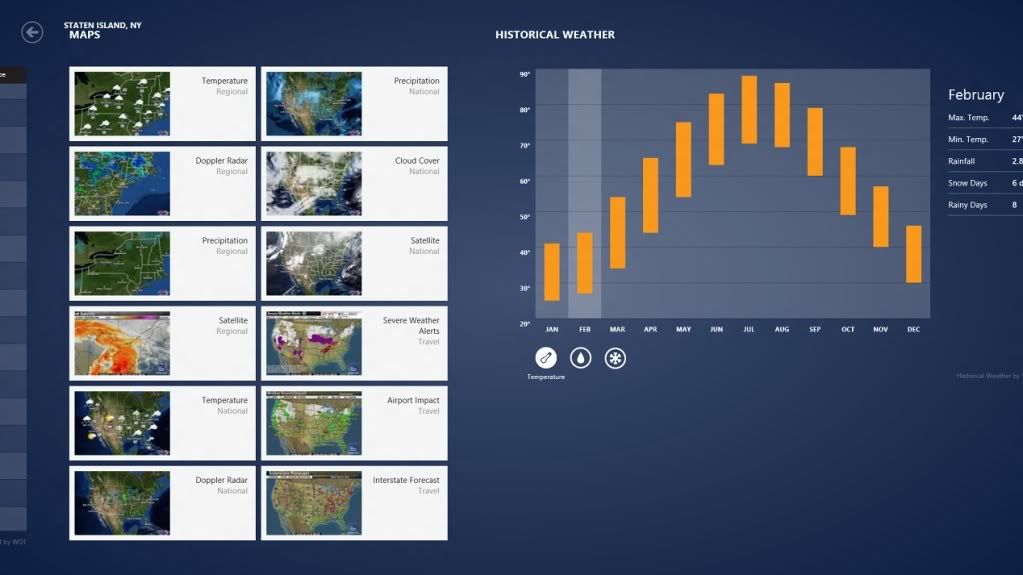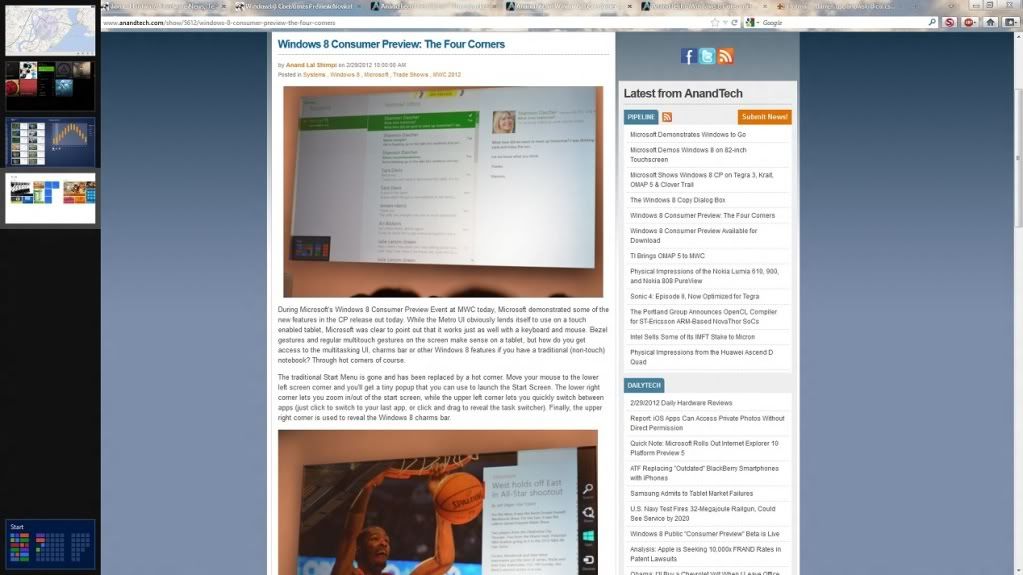Windows 8
Posted: Sun Sep 11, 2011 5:42 pm
That is, the successor to Windows 7 now in development which presumptively will be called simply, Windows 8. Pending some announcement of a new name, Microsoft itself is referring to the new OS as Windows 8. Anyway, it seems to be on track for a preview beta release late this year and a full retail release in 2012.
According to the official Windows 8 blog by Microsoft, we know it will feature:
A new "metro" interface designed to be touch-friendly and tablet-ready, alongside a more traditional Windows Desktop similar to that currently in Win 7.
Dramatically improved boot times
Improved file management and a new Windows Explorer interface which in addition to adopting the "ribbon" interface first seen in Office 2007 will include the return of the "up" button removed in Win Vista/7 but present in XP and earlier.
Also, newer technologies like USB 3.0 will be natively supported, support for .iso and .vhd images will be improved, visualization technology (Hyper-V) will be baked into the consumer versions of Windows (formerly limited to Server versions), etc. Internet Explorer 10 (also currently in development) is expected to be the built-in browser, an advance from the current IE9 in WIndows Vista or 7. Rumor has it that Win 8 will include a built-in .pdf reader, though there's been no official confirmation yet. More details on the technical underpinnings and user-visible features will be presented shortly at the BUILD conference.
So, how do the more technically inclined people see all this? I'm currently optimistic it'll be a good new release. Unlike the messy transition from XP to Vista (which broke a lot of then-current software and drivers), Microsoft is promising that software designed for Windows 7 will work in Windows 8. Like Windows 7, which has the same official hardware requirements as Vista but actually tends to run better on a given machine than Vista, Win 8 will have those same official hardware requirements yet again. This makes a nice break from the history of a new release of Windows requiring much more RAM and CPU resources than its direct predecessor (another problem which dogged Vista compared to XP).
According to the official Windows 8 blog by Microsoft, we know it will feature:
A new "metro" interface designed to be touch-friendly and tablet-ready, alongside a more traditional Windows Desktop similar to that currently in Win 7.
Dramatically improved boot times
Improved file management and a new Windows Explorer interface which in addition to adopting the "ribbon" interface first seen in Office 2007 will include the return of the "up" button removed in Win Vista/7 but present in XP and earlier.
Also, newer technologies like USB 3.0 will be natively supported, support for .iso and .vhd images will be improved, visualization technology (Hyper-V) will be baked into the consumer versions of Windows (formerly limited to Server versions), etc. Internet Explorer 10 (also currently in development) is expected to be the built-in browser, an advance from the current IE9 in WIndows Vista or 7. Rumor has it that Win 8 will include a built-in .pdf reader, though there's been no official confirmation yet. More details on the technical underpinnings and user-visible features will be presented shortly at the BUILD conference.
So, how do the more technically inclined people see all this? I'm currently optimistic it'll be a good new release. Unlike the messy transition from XP to Vista (which broke a lot of then-current software and drivers), Microsoft is promising that software designed for Windows 7 will work in Windows 8. Like Windows 7, which has the same official hardware requirements as Vista but actually tends to run better on a given machine than Vista, Win 8 will have those same official hardware requirements yet again. This makes a nice break from the history of a new release of Windows requiring much more RAM and CPU resources than its direct predecessor (another problem which dogged Vista compared to XP).
